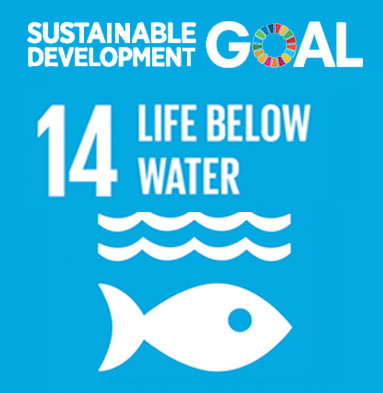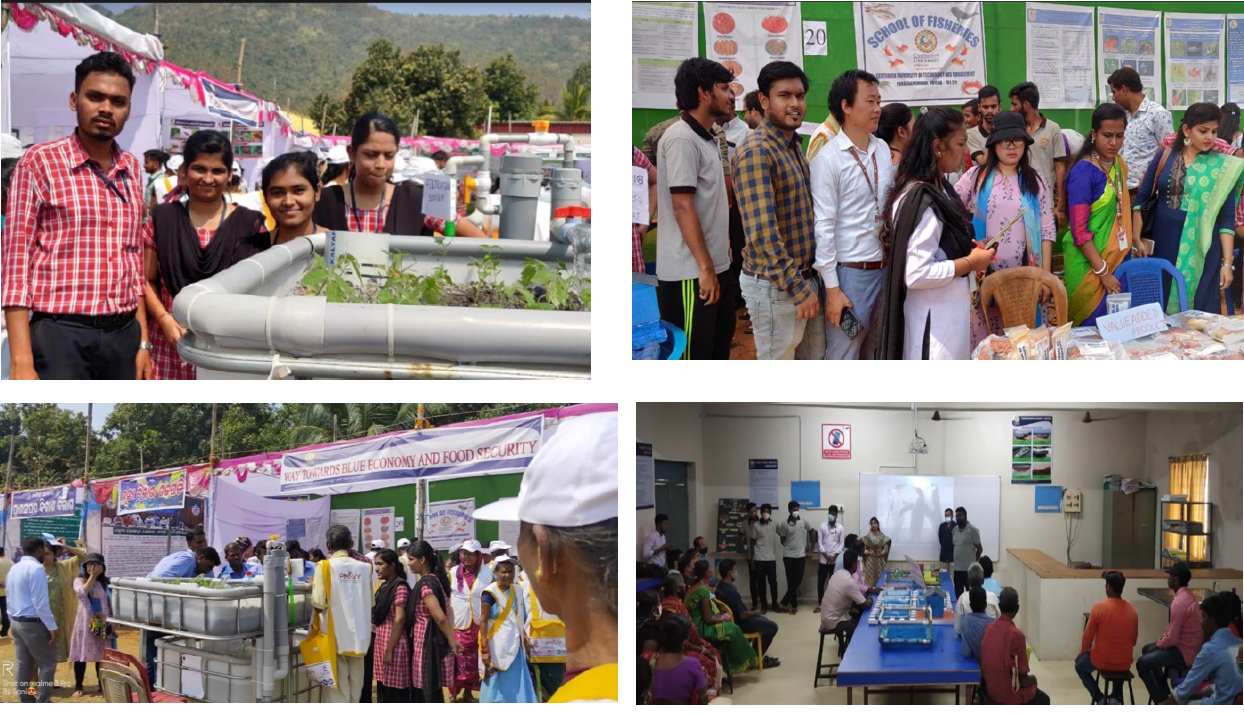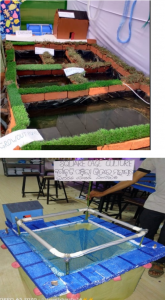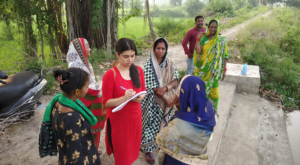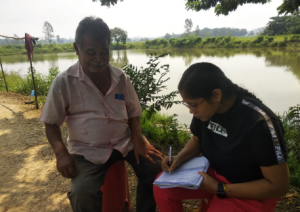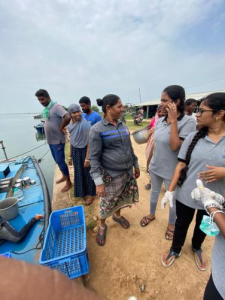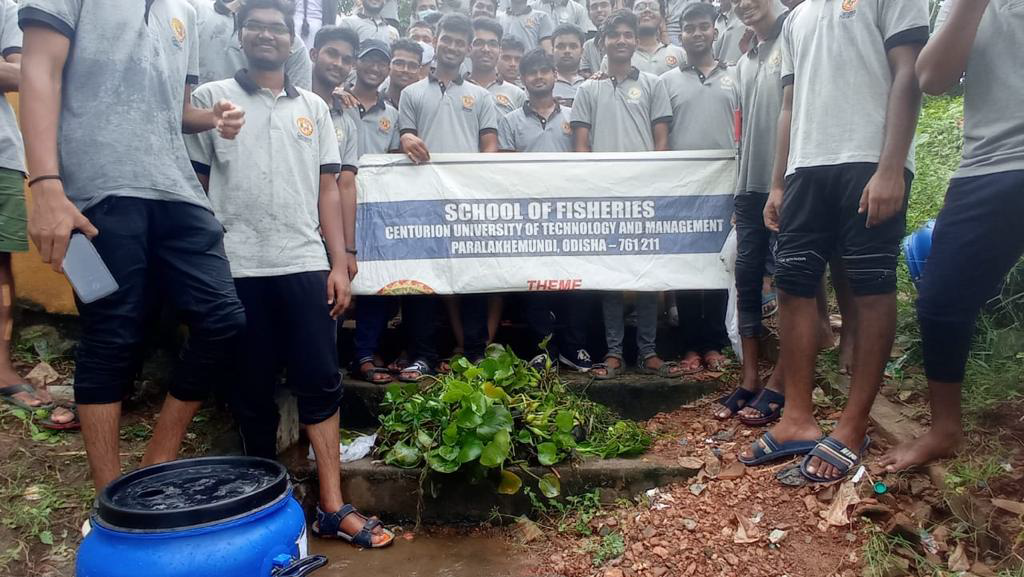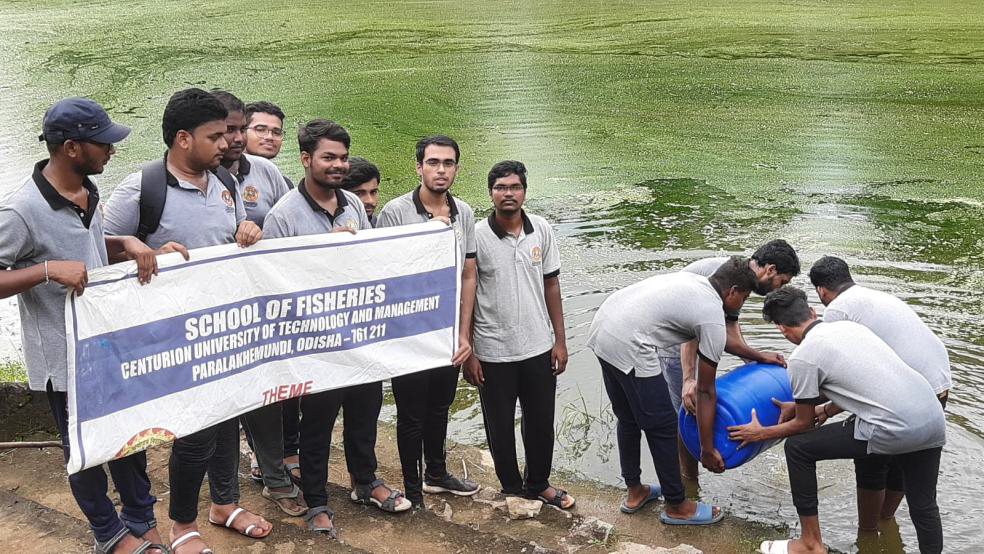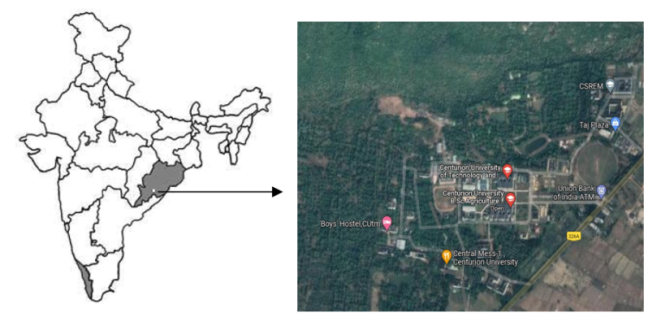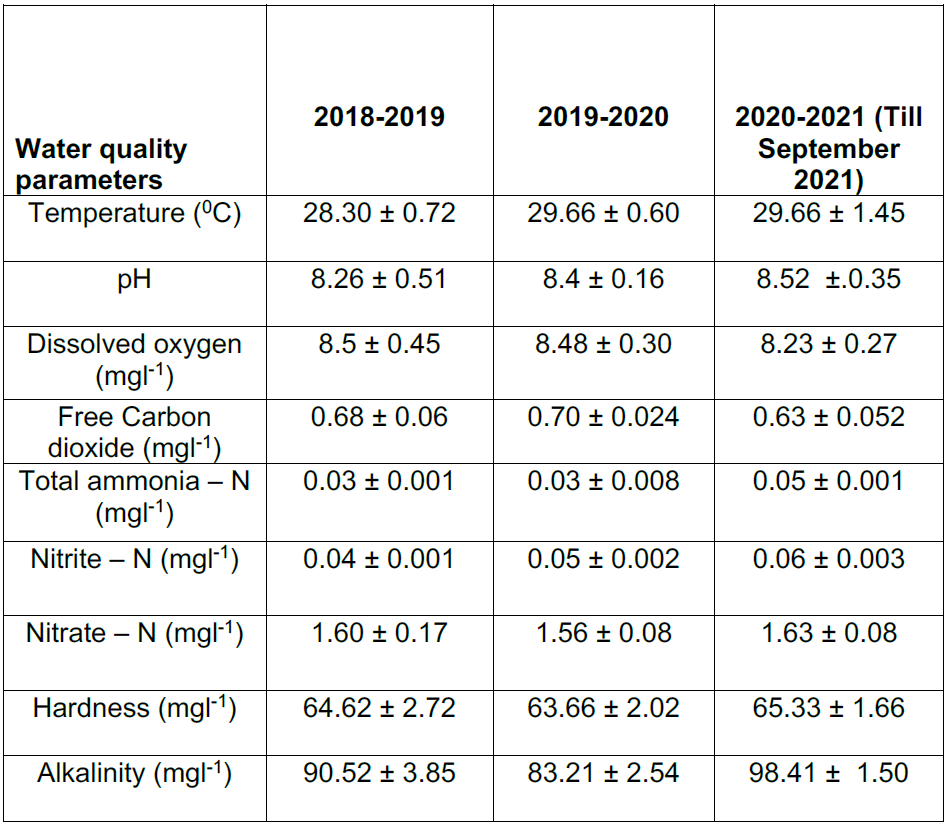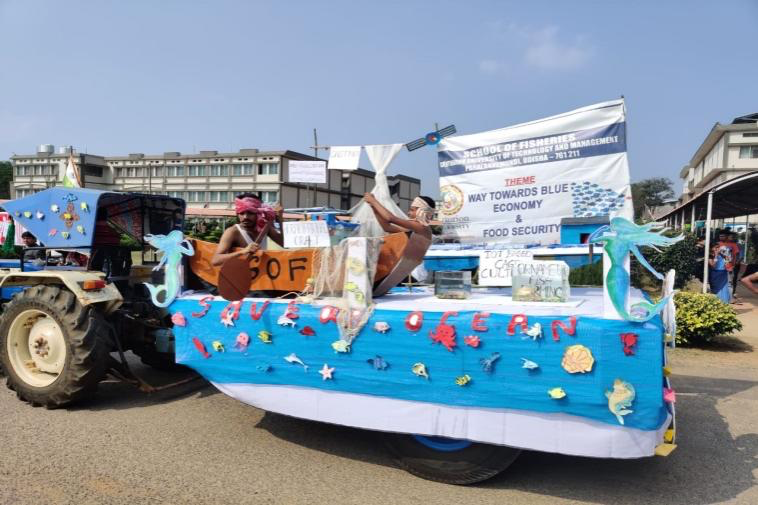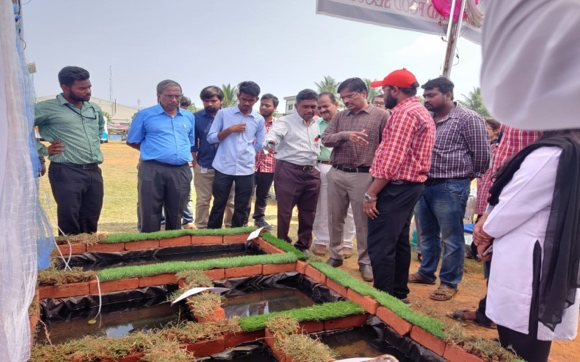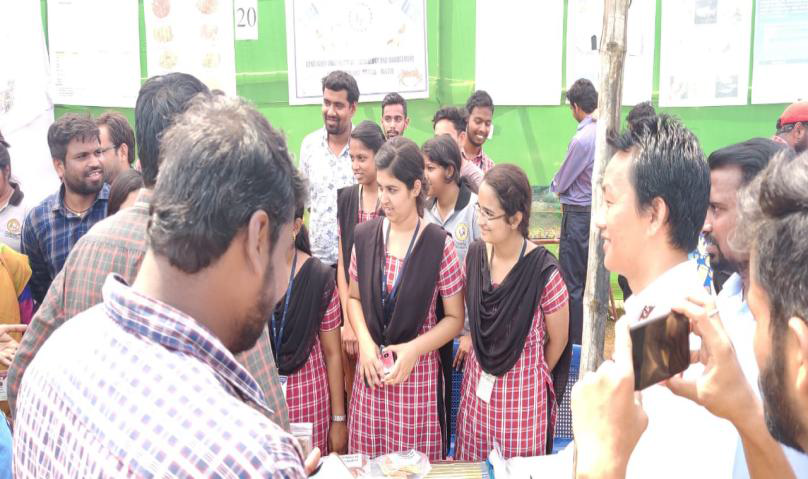School of Fisheries
Overview:
School of Fisheries committed to Sustainable Development Goal 14: “Life Below Water”
CUTM is the first private university in Odisha which was established through the CUTM Act 4 of the Odisha State Legislative Assembly in 2010. In due course, it has got recognition as Grade-A University by National Assessment and Accreditation Council (NAAC), Ministry of HRD (Annex 1) and 12 B status by UGC (Annex 2). Apart from SDG 14 the school contributes significantly to SDGs 1,2,4,12 and 13. The objectives of CUTM are shaping lives, empowering communities and co-creating wealth and livelihood opportunities in Left Wing Extremism (LWE) affected districts of South Odisha and North Coastal Andhra Pradesh. Teaching, training, consulting and research activities of the university are geared towards employability enhancement, employment generation through entrepreneurship development and preparing graduates for higher education. The University offers its education, training and other services through different Schools. CUTM has five campuses at Paralakhemundi, Bhubaneswar, Bolangir, Rayagada and Chatrapur It has more than 9,000 students in Under-graduate and post-graduate programs. It imparts employable skills to over 20,000 students annually in vocational programs.
The school of Fisheries is the only private institution in the fisheries sector in the State of Odisha imparting an undergraduate professional degree programme, Bachelor of Fisheries Science (B.F.Sc). The degree program started in the year 2017. The school is located at Parlakhemundi, Odisha.
Highlights:
The curriculum of the course is consistent with that of the other fisheries colleges in India, it is based on the recommendation of the Dean’s Committee Report organized by ICAR based on the needs of the fisheries industry of the country. Currently the school is offering various courses related Fisheries which are taught in 5 departments. A total of 180 credit hours are presently offered to the students, out of which 140 credits hours is covered from 1 st to 6 th Semester the remaining 0 + 20 credit hour and 0 + 20 credit hours are offered to students during the 7 th and 8 th semesters under Experiential Learning and In-plant Training respectively. The school also invites visiting faculties from research institutes, academics and industries in order to familiarize the students to the latest developments in the field of fisheries.
A number of courses are being offered to its students as per the ICAR 5th Dean committee syllabus of ICAR, New Delhi. Although most of the courses in the syllabus deal with the aspect of protection, conservation and sustainable use of aquatic resources, the courses of which mostly accords to the SDGs are listed below:
1. Aquaculture in Reservoirs
2. Soil and Water Chemistry
3. Limnology
4. Aquatic Ecology, Biodiversity and Disaster Management
5. Fishery Oceanography
6. Aquatic Mammals, Reptiles and Amphibians
7. Aquatic Pollution
8. Fisheries Policy and Law
9. Fish Population Dynamics and Stock Assessment
The school also fosters farmers training and participation through organizing conferences and workshops, where the sustainable use of natural resources like promotion of zero water culture, Biofloc culture (http://courseware.cutm.ac.in/wp-ontent/uploads/2020/06/C18.pdf), Organic aquaculture, use of herbal medicines and avoidance of antibiotics are promoted. The school organizes different training programs and presentations by eminent experts.
The school had organized a three day All India Training and Demonstration Programme on “Healthy Shrimp and GIFT Tilapia Culture Using Biofloc Technology” at Centurion university campus, Bahanaga, Gopalpur, Balasore in association with National Fisheries Development Board, Hyderabad and Tamil Nadu Dr. J. Jayalalithaa Fisheries University, Nagapattinam, Tamil Nadu on 27.08.2018 – 29.08.2018.
Dr. Latha Shenoy P.S. (Retd.), FRM Division, ICAR-CIFE, Mumbai, a well-known scientist in the field of fisheries resource management in India has delivered her lecture on the topic Current Status and Road to Sustainable Marine Fisheries Development in India. She started the
lecture by highlighting the important role of fisheries in the Indian economy and marine fisheries resource potential in India. She provided details about the issues in marine fisheries, such as about 60% of global fish stocks are fully fished, 30% is overfished and 10%
is underfished. She also spoke about overfishing (biological overfishing, growth overfishing, recruitment overfishing, ecosystem overfishing), destructive fishing, bycatch/discards, climate change impact, etc.
The school arranges different awareness programs:
Organizing kisan mela and training programs for local farmers about fisheries and aquaculture
Kisan Mela
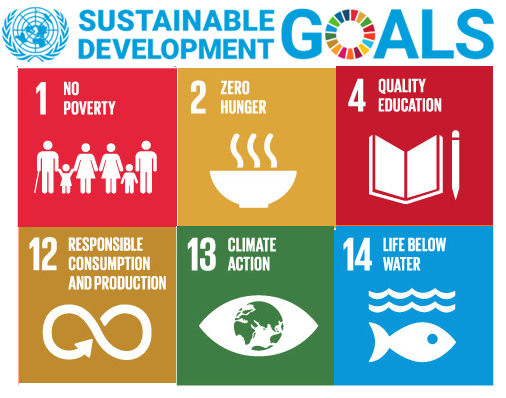
School of Fisheries highlighted the theme Way Towards Blue Economy and Food Security which emphasized the need for increasing fish productivity. Models of cage culture, carp polyculture, fish specimens, fishing boats, aquariums, fishery byproducts were exhibited, alongwith a live model of the aquaponics unit (see the pictures alongside). Around 500 farmers visited the stalls and got information regarding modern fish culture techniques such as aquaponics, biofloc, cage farming, fish hatchery, etc. The aquaponics unit also exhibited in the stall, which attracted many farmers and it helped them to adopt to that technology as it is a profitable practice. It enabled our faculty and students to interact with farmers and address their problems. The Kisan mela proved to be a great success for the farmers of Gajapati district.
Farmers training -ATMA

days. The first day sessions were on aquaculture topics such as ornamental fish culture, carp culture, hands on training on aquarium fabrication, pre-stocking and post-stocking management in fish culture. Farmers visited our wet lab units where ornamental fishes, food
fishes such as Tilapia, Amur carp are reared in glass and cemented tanks respectively. On the second day, farmers were allotted to the fish processing unit, where they experienced hands on training on the preparation of fish pickle, shrimp pickle and fishery value added products.
ATMA farmers training was successfully completed with a positive feedback from the participants. The training helped farmers to know about the opportunities in the field of fisheries and aquaculture for livelihood generation, which is an untapped sector at Parlakhemundi.
Webinars and presentations :
The school organizes webinars and presentations on a regular basis.

Educational programs for the regional communities:
Like any other responsible institution, Centurion University of Technology and Management works to raise its voice against unsustainable fishing practice. The School of Fisheries promotes educational outreach activities through its research outlook and awareness programs, and by directly contacting the fisherman communities.
The school has conducted a sample survey among the fishermen with questionnaires related to fishing and aquaculture practices and found that the local fishermen are least concerned with the sustainable harvesting of fishes from nature. Taking the survey report into account, the school formulated action plans for educating the fishermen about the sustainable use of resources through student involvement. The students of the school directly meet the local fish farmers and encourages them for best fishery management.
Our students educate the local Bhavanapadu fisherman communities through organizing camps along with interaction with them. They educate the fisherman about good practices such as negative impacts of overfishing, unregulated fishing, destructive fishing ,blast fishing, bottom trawling, and cyanide fishing. Further-more a faculty- fish farmer interaction session was planned in which many questions mostly related to value adding of low value fishes and close season was answered extensively.
Our students and faculty, during the visit to Bhitarkanika aware the locals especially youth and fisherman about the importance and conservation of mangroves and their biodiversity.
Cleaning initiatives:

Ranching fish seeds at Ramsagar reservoirs:

Fish samples were collected from different stations in the reservoir during the study period 2018-2019. With the help of local fishermen using different types of non-destructive fishing gears like cast net and gill nets, a total number of 29 species of which majority of the species are from the family Cyprinidae, followed by Channidae and Cobitidae were found in this reservoir.
Development of sustainable fisheries and Aquaculture technology:
1. Captive breeding of Indigenous fishes, particularly major carps species
2. Fish waste utilization (Production of fish Silage)
3. Others: Consumption of nutritionally important Fish, Limiting the Use of Plastics, Disposables and Single-Use products, reducing the chances of Ocean Acidification, Participation in a Cleanup projects or collaborating with the same, Responsible use of Fishing Line Responsibly, Marine Life Responsibly etc.
4. Collaboration with different organizations Eg. ICAR-Central Institute of Fisheries Education, Mumbai, Maharashtra, India
Joint research and publications were made with ICAR-Central Institute of Fisheries Education, Mumbai, Maharashtra, India
Captive breeding of Indian Major Carp:

This Artificial hypophysation of carps was done at the School of Fisheries, Centurion University of Technology and Management, The number of bred species was taken as per guideline and the entire method was carried out in Cement tanks and ponds. The brood fishes of IMC (Rohu and Catla) were acclimatized in Broodfish rearing tank in Fish rearing unit, SoF. As per requirement Broodstocks were collected from Department of Fisheries and were reared in earthen ponds till maturity. The breeding program was successfully done by the students and they were able to get 10000 litres of carp eggs.
Management of Invasive species of Flora and Fauna:

Invasive Alien Species refers to an alien species whose introduction and/or spread threaten the biological diversity of the region/habitat. In the recent past, Invasive Alien Species have been emerging as the second biggest threat to global biodiversity after habitat destruction. Several species of alien flora and fauna have been reported from Ramsagar Reservoir. Especially, plants like Water Hyacinth (Eichhornia crassipes), Giant Salvinia (Salvinia molesta), and water cabbage/ lettuce (Pistia stratioies) caused severe damage to our wetland ecosystem. In recent times the school had conducted a fish biodiversity study for Ramsagar reservoir and found that it is infested with Eichhornia aquatic weeds and some alien species of fish such as American sail fin catfish (Pterygoplichthys pardalis). Frequently the alien fishes were captured through cast net operation and were removed from the reservoir.
Fish health surveillance:

Physicochemical parameters of water for Ramsagar reservoir from January 2018 to September 2021:
Prevention of use of Antibiotics and Chemical applications:

Protection of fishes and their health
A. Inhibition of Invasive fish culture:

Invasive fish species are those fish species that do not occur naturally in a specific aquatic environment and whose introduction does or is likely to cause harm to the indigenous fish species living in the aquatic system or may cause economic or environmental harm to the ecosystem. Centurion University of Technology and Management (CUTM) plays an important role in the prevention of culture of Invasive fish culture like tilapia, Thai-magur etc. The potential risk not only affects the quality or level of biodiversity but also the socio-economic aspects of the human community that depend on aquatic ecosystems for their livelihood. The indiscriminate and unmonitored entry and transfer of the exotic species are particularly alarming, raising several concerns including producing hybrids by crossing with indigenous fish species and thus contaminating the fish germplasm.
B. Promotion of Organic maturing:

Organic aquaculture has attracted the attention of researchers from several academic disciplines as well as environmental advocates and entrepreneurial innovators. A small number of “certified” and non-certified organic fish and microalgae products have made it to the retail marketplace. While the regulatory specifics still need to be addressed, this new organic market niche has significant potential for growth in the future.
